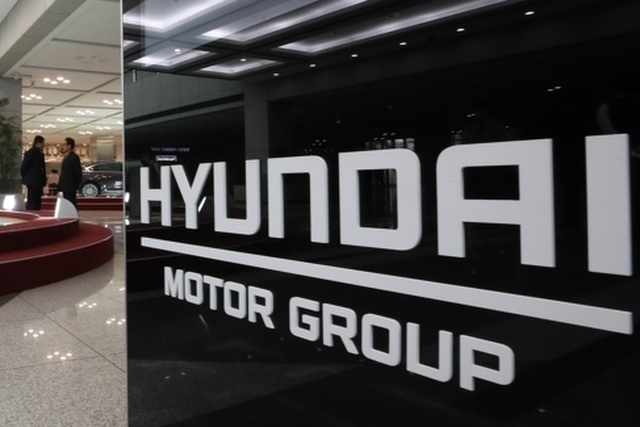Unionized workers and the management at Hyundai Motor reached an agreement early Tuesday on this year’s wages, after the union voted not to stage sit-in protests amid intensifying uncertainties over the business environment and the local auto industry.
In a vote held Monday, 56 percent of Hyundai Motor workers approved a revised wage and collective bargaining deal, according to the union.
The union formally approved the management’s proposal without a strike for the first time in eight years, clearing hurdles for the South Korean carmaker that had feared a considerable delay in vehicle production.
 |
(Yonhap) |
Hyundai Motor’s union, founded in 1987, staged strikes almost every year, with exceptions in 2007 and for three years beginning in 2009.
Protests are normally staged before signing wage deals, and those protests have been blamed for dragging production efficiency down, delaying the launch of new vehicles and raising business uncertainty for a carmaker that is already struggling from fierce market competition and industrial transformation.
The union, known for its hard-line stance, said the vote to accept the management’s proposals came as uncertainties in the business environments grow and that the public eye toward the union’s plan of staging protest, in this particular time of the economy going down the hill, no longer remain amicable.
“The union has voted to approve the company’s revised proposals as uncertainties in business environments grow further over an escalating US-China trade war, Japan’s export curb and a slowdown in the auto industry,” the union said in a statement.
Prime Minister Lee Nak-yon expressed gratitude toward both sides, saying they were making a “mature” decision.
“It suggests that we can have a developed labor-management culture,” Lee said at a Cabinet meeting Tuesday.
“The government will help labor and management overcome difficulties through cooperation,” he said.
By deciding not to stage protests this year, the 50,000-member Hyundai Motor union said it hoped to prevent itself from becoming isolated from the community and counter critical views among people who believe it makes excessive demands. Unionized workers, particularly in the manufacturing sector, have been blamed for threatening management ahead of each annual wage deal despite their relatively high income.
This year, the management’s proposal included raising the basic monthly salary 1.7 percent or 40,000 won, one and a half months of wages and 3 million won in addition for performance-based pay. The proposal also added bonus in cash between 2.2 million and 6.2 million won per person.
The union had demanded the company to pay 30 percent of its net income as a bonus package and add 123,526 won in basic monthly pay. The carmaker posted a net income of 1.87 trillion won for 2018 financial year that ended in March.
The agreement will speed up the planned delivery of popular vehicles such as the Palisade, possibly help the company to increase sales, according to industry insiders and watchers.
“The management and the labor reaching the deal without a strike this year, alleviates business uncertainties in the remaining second half in which the company is planning to launch a series of new cars,” said a senior manager at Hyundai Motor.
From January to August, Hyundai sold a total of 2.85 million vehicles, down 4.3 percent from 2.98 million a year ago. It has achieved 60 percent of its annual sales target of 4.68 million units this year.
By Cho Chung-un (
christory@heraldcorp.com)








![[Today’s K-pop] Blackpink’s Jennie, Lisa invited to Coachella as solo acts](http://res.heraldm.com/phpwas/restmb_idxmake.php?idx=644&simg=/content/image/2024/11/21/20241121050099_0.jpg)